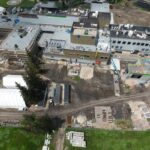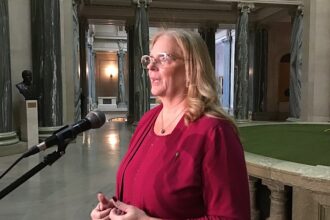The frigid Yukon landscape mirrors the increasingly cold reality facing its healthcare system. Medical professionals across the territory are sounding urgent alarms about a healthcare infrastructure that appears to be freezing in place while patient needs continue to mount at unprecedented rates.
“We’re witnessing the perfect storm of healthcare challenges,” says Dr. Katherine Reynolds, President of the Yukon Medical Association, in an exclusive interview. “Chronic physician shortages, limited specialist access, and outdated facilities have created a system that’s increasingly unable to meet basic community needs.”
A recently published territorial health assessment reveals troubling statistics: wait times for specialist appointments have increased by 37% since 2020, while the territory’s physician-to-patient ratio has deteriorated to approximately one doctor per 1,200 residents—significantly below the national average.
The crisis is particularly acute in rural communities, where residents often travel hundreds of kilometers for services that urban Canadians take for granted. Indigenous communities bear a disproportionate burden, with healthcare outcomes consistently lagging behind territorial averages.
“What we’re seeing isn’t just a healthcare issue—it’s becoming a fundamental question of equity and access,” notes Dr. Michael Frost, who practices in Dawson City. “When basic healthcare becomes a luxury determined by postal code, we’ve failed as a society.”
The Yukon government has responded with promises of increased funding and recruitment incentives, including a newly announced $15 million healthcare stabilization package. However, frontline workers remain skeptical about implementation timelines and whether the measures address structural issues.
Healthcare recruitment challenges remain particularly stubborn. Despite competitive salary packages, the territory struggles to attract and retain specialists. “The isolation, housing costs, and professional limitations create significant barriers,” explains Sarah Chen, healthcare policy analyst at the Yukon Policy Institute. “We’re competing with provinces that offer both professional opportunities and lower living costs.”
Mental health services represent another critical gap. With only four psychiatrists serving the entire territory’s population of roughly 43,000 people, patients requiring specialized mental healthcare often face months-long waits or costly travel to southern provinces.
The economic implications extend beyond immediate healthcare concerns. Chamber of Commerce surveys indicate that healthcare access has become a significant factor in business recruitment, with companies reporting difficulties attracting talent due to concerns about medical services.
Community advocates have organized under the banner “Healthy Yukon Coalition,” pressing for systemic changes including telemedicine expansion, increased Indigenous healthcare sovereignty, and infrastructure modernization. Their proposal calls for a comprehensive five-year territory-wide healthcare transformation with clear accountability metrics.
Federal intervention may ultimately prove necessary. Parliamentary committees have recently highlighted the unique challenges facing northern healthcare systems, with recommendations for dedicated northern healthcare funding frameworks that acknowledge the higher service delivery costs in remote regions.
As winter settles across the territory, the question grows more urgent by the day: will the Yukon’s healthcare system find solid ground, or will residents continue facing an increasingly fragile network of services that leaves too many falling through the cracks?

























